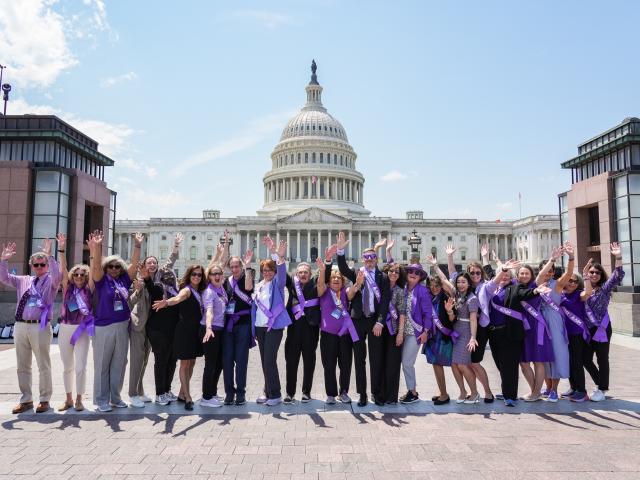Senate Special Committee on Aging shows strong bipartisan support for Alzheimer’s community
Washington, D.C., Nov. 5, 2025 — Erick Montealegre, an Alzheimer’s Association and Alzheimer’s Impact Movement (AIM) volunteer and family caregiver, testified before the Senate Special Committee on Aging today, sharing his personal story and urging Congress to reauthorize the Older Americans Act (OAA). Members of the committee showed their strong bipartisan commitment to advancing progress in the fight against Alzheimer’s and other dementia during the hearing.
“Caregiving, as many of us here know, is emotionally taxing, physically demanding, financially challenging and a full-time responsibility,” said Montealegre. “With the help of our local Area Agency on Aging, we accessed services under the Older Americans Act, which have made a world of difference to [my dad’s] quality of life.”
“The Older Americans Act has made a difference for so many families impacted by Alzheimer’s and other dementia,” said Robert Egge, Alzheimer’s Association chief public policy officer and AIM president. “We’re looking forward to working with Congress to reauthorize this critical bipartisan legislation.”
Over 7 million Americans age 65 and older are living with Alzheimer’s. While the vast majority are over 65 years old, approximately 200,000 Americans are under the age of 65 living with younger-onset Alzheimer’s disease. These individuals fall outside the typical scope of aging services, leaving them without access to the age-targeted supports they critically need. The services authorized under the OAA are uniquely positioned to close that gap by providing resources to individuals regardless of age, based on cognitive need.
The Older Americans Act Reauthorization Act of 2025 will continue to ensure people living with younger-onset Alzheimer’s disease are explicitly eligible for services through key OAA programs, including the National Family Caregiver Support Program and the Long-Term Care Ombudsman Program. Codifying this eligibility, as established by the Younger-Onset Alzheimer’s Disease Act, is essential to addressing the distinct and often overlooked challenges younger individuals with Alzheimer’s face. These individuals may still be raising young children, in the workforce, or struggling to secure an accurate diagnosis — facing stigma and delays that compound the disease’s toll.
This critical legislation also includes the reauthorization and extension of the RAISE Family Caregivers Act. As the caregiving crisis intensifies, especially in the Alzheimer’s community, this extension will ensure the Department of Health and Human Services can fully implement a national strategy to better support unpaid caregivers. The bill also expands efforts to address social isolation, a pressing issue for the aging population and especially for individuals with dementia.
“Reauthorizing and strengthening the Older Americans Act is an investment in families, dignity and community,” testified Montealegre. “Its programs provide families like ours with structure, valuable resources, support and hope — hope that my siblings and I can give Dad the best care possible while balancing our own lives. And hope that, as our country ages, no family will have to walk this journey alone.”
